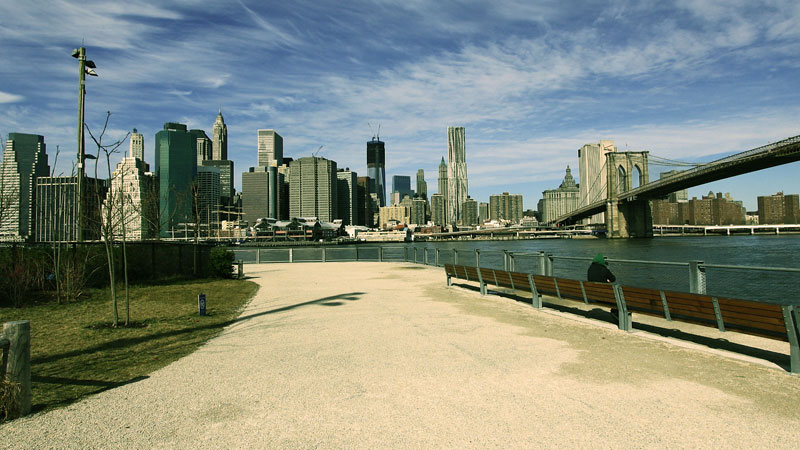
Channel tragedy spotlights Britain’s Rwanda migrant law
London — French authorities say a 7-year-old girl was among five migrants who drowned in the English Channel on Tuesday just hours after British lawmakers voted through legislation aimed at deterring asylum-seekers from making the crossing.
Local officials said the inflatable dinghy carrying some 112 people hit a sandbank after leaving a beach near the village of Wimereux.
“A few hundred meters from the shore, the engine stopped, and several people fell into the water,” said Jacques Billant, prefect of the French Pas-de-Calais region.
“Despite this complex and delicate situation, 57 people who were still in the inflatable boat remained on board. Not willing to be rescued, they managed to restart the engine and decided to continue their sea route towards Britain,” Billant told reporters.
Such is the determination of the migrants to reach British shores. Over 6,300 people have made the journey across the English Channel in small boats so far this year.
The tragedy happened early Tuesday morning, a few hours after British lawmakers passed legislation that the government hopes will allow it to deport asylum-seekers arriving in small boats across the English Channel to Rwanda for processing.
The migrants would be processed in the African state and have no right to return to Britain, even those granted refugee status.
The legislation effectively orders the courts to ignore existing British laws or international treaties that could block the deportations. Britain’s Supreme Court ruled the policy was illegal in November 2023, as there was a risk that refugees could be sent from Rwanda back to their countries of origin. It is unclear if further legal challenges could delay the flights.
British Prime Minister Rishi Sunak said the prospect of being sent thousands of kilometers away to Rwanda will deter migrants from making the journey to Britain.
“The first flight will leave in 10 to 12 weeks. Now, of course, that is later than we wanted. But we have always been clear that processing will take time,” Sunak said Monday evening after the legislation passed.
The government argues the policy is moral, as it aims to end the dangerous journeys operated by people smugglers. But both the United Nations High Commissioner for Refugees and the High Commissioner for Human Rights have called for Britain to rethink the legislation.
“By shifting the responsibility for refugees, reducing the U.K. courts’ ability to scrutinize removal decisions, restricting access to legal remedies in the U.K. and limiting the scope of domestic and international human rights protections for a specific group of people, this new legislation seriously hinders the rule of law in the U.K., and it sets a perilous precedent globally,” Ravina Shamdasani, a spokesperson for the High Commissioner for Human Rights, said at a news briefing Tuesday in Geneva.
Under the deal, Britain pays Rwanda at least $458 million over five years, with extra payments on top worth tens of thousands of dollars for each migrant sent to the country. The opposition Labour Party has called it an “expensive gimmick” that won’t work.
The passing of the legislation after years of wrangling and court battles is being seen as a political victory for Sunak. Whether the policy deters migrants from making the deadly journeys across the English Channel remains to be seen.
Migrant support groups dispute Sunak’s claims that the policy will stop the boats.
“We will not see the boats stop because of this [Rwanda policy]. We will see more deaths, we will see more dangerous risks being taken,” Kay Marsh of the migrant charity Samphire told Reuters.
…
Azerbaijan says ‘closer than ever’ to Armenia peace deal
Baku, Azerbaijan — Azerbaijani President Ilham Aliyev said on Tuesday a peace deal with Armenia was closer than ever before, as teams from both countries began demarcating the border in a bid to end decades of territorial disputes and clashes.
Aliyev’s optimism comes amid progress on marking the border despite protests in Armenia, still bruised after Baku seized control of the contested Nagorno-Karabakh region in a lightning offensive last year.
On Tuesday, teams from both countries installed the first border marker after officials had agreed to delimit a section based on Soviet-era maps.
“We are close as never before,” Aliyev said on Tuesday of an elusive peace deal.
“We now have a common understanding of how the peace agreement should look like. We only need to address details,” he said.
“Both sides need time… We both have political will to do it.”
Armenian Prime Minister Nikol Pashinyan last month agreed to return four border villages that were part of Azerbaijan when the two countries were republics of the Soviet Union.
Aliyev said Tuesday he had accepted a proposal by Kazakhstan to host a meeting of their foreign ministers.
Several countries have tried to play mediator — including Russia, Iran, the United States, France and Germany — but years of talks have failed.
Aliyev downplayed the need for third party intervention.
“We are not talking about any kind of mediation, because what happens now on our border demonstrates that when we are left alone… we can agree sooner than later,” he said.
Experts from both countries installed the first marker on Tuesday, they announced in identical statements.
Rallies had earlier erupted in Armenia, with protestors briefly blocking traffic at several points on the Armenia-Georgia highway, fearful of giving up more land.
Yerevan said Tuesday it would not transfer “Armenia’s sovereign territory.”
The four abandoned settlements that are to be returned to Azerbaijan — Lower Askipara, Baghanis Ayrum, Kheirimly and Gizilhajili — were taken over by Armenian forces in the 1990s, forcing their ethnic Azerbaijani residents to flee.
But Armenian residents of nearby villages worry they will end up isolated from the rest of the country and that some houses could fall into Azerbaijani territory.
The area has strategic importance for landlocked Armenia: Several small sections of the highway to Georgia — a vital trade artery — could be handed over.
The delimited border will run close to a major Russian gas pipeline, in an area that also offers advantageous military positions.
Pashinyan has insisted on the need to resolve the border dispute “to avoid a new war.”
On Saturday, he said Russian guards deployed in the area since 1992 would be replaced “and border guards of Armenia and Azerbaijan will cooperate to guard the state border on their own.”
Border delimitation was a “significant change,” he said, adding: “now have a border and not a line of contact, which is a sign of peace.”
Last autumn, Azerbaijani troops recaptured the breakaway Nagorno-Karabakh region from Armenian separatists in a one-day offensive that ended a bloody three-decade standoff over the region.
But lingering territorial claims have continued to threaten a fresh escalation.
Baku has claims over four more villages located in exclaves deeper in Armenian territory.
It is also demanding the creation of a land corridor through Armenia to connect the mainland to the Nakhichevan exclave and onwards to close ally Turkey.
Yerevan, in turn, points to its own exclave in Azerbaijan and pockets of land Baku has seized over the last three years outside of Karabakh.
…
Turkey arrests pro-Kurdish reporters in ‘terrorism’ probe, relative says
Istanbul — Nine Turks working for pro-Kurdish media outlets were arrested Tuesday in Turkey, their employers and lawyers said, with a relative of one saying they were accused of “terrorist activities.”
Four women and five men were arrested at dawn in Istanbul, the capital Ankara, and the southeastern city of Urfa, lawyers from the Media and Law Studies Association (MLSA), a press freedom organization, said.
MLSA said those arrested work for news organizations including the Mezopotamia Agency and the newspaper Yeni Yasam and include several journalists and “press employees.”
The nine were denied access to their lawyers for 24 hours, MLSA said in a message on X.
“No declaration has been made about the reasons for the detention of the journalists” on Tuesday morning, it said.
Mezopotamia said one of its journalists was arrested in Ankara during “a police operation at his home.”
A relative of one of the journalists, who asked not to be named, told AFP the police showed up at the journalist’s home at dawn.
She said the families of the journalists had been informed that their arrests were “part of an investigation opened in 2022 for terrorist activities.”
The journalists based in Istanbul were being held on Tuesday in a police station in the city, she said.
The international press freedom organization Reporters Without Borders, contacted in Istanbul, said it was “monitoring the situation closely.”
Elsewhere, Belgian police searched the studios of two Kurdish channels, Sterk TV and Medya News, that broadcast from Belgium, the two media outlets said in a statement to AFP.
The Belgian public prosecutor’s office said in a statement on Tuesday that the searches were carried out “during the night” “at the request of the French judiciary,” which is seeking to “establish possible evidence of terrorist financing.
A source close to the police operation who asked not to be named told AFP those raids had “no link” to the arrests in Turkey.
…
UK announces $620 million in new military aid for Ukraine, plan to up own defense spending
Warsaw, Poland — U.K. Prime Minister Rishi Sunak announced Tuesday that the country is to increase defense spending to 2.5% of GDP by the end of the decade.
Sunak made the announcement during a visit to Warsaw, where he also described a new pledge to send arms to Ukraine.
He said the government is putting the U.K.’s defense industry “on a war footing,” describing it as the “biggest strengthening of our national defense for a generation.”
“In a world that is the most dangerous it has been since the end of the Cold War, we cannot be complacent,” he said at a news briefing in Warsaw alongside NATO secretary general Jens Stoltenberg. “As our adversaries align, we must do more to defend our country, our interests and our values.
The announce followed the U.K. pledging an additional $620 million in new military supplies for Ukraine, including long-range missiles and 4 million rounds of ammunition, at a time when Ukraine is struggling to hold off advancing Russian forces on the eastern front line of the war, now in its third year.
Sunak spoke with Ukrainian President Volodymyr Zelenskyy to confirm the assistance and “assure him of the U.K.’s steadfast support for Ukraine’s defense against Russia’s brutal and expansionist ambitions,” Sunak’s office said.
Ahead of the visit the U.K. government said Sunak would announce 500 million pounds ($620 million, 580 million euros) in new British military supplies, including 400 vehicles, 60 boats, 1,600 munitions and 4 million rounds of ammunition. The shipment will include British Storm Shadow long-range missiles, which have a range of some 150 miles (241 kilometers) and have proved effective at hitting Russian targets.
“President Zelenskyy thanked the prime minister for the U.K.’s continued support, saying the new military assistance would make a material difference to ordinary Ukrainians fighting on the front line to defend their country,” Downing Street said.
However, Downing Street did not indicate whether the aid would be immediately available for delivery. Zelenskyy has pleaded for greater international assistance, warning that his country will lose the war without it.
The announcement came three days after the U.S. House of Representatives approved $61 billion in aid for Ukraine, as American lawmakers raced to deliver a fresh round of U.S. support to the war-torn ally. The Senate was expected to vote on the package Tuesday.
Ammunition shortages over the past six months have led Ukrainian military commanders to ration shells, a disadvantage that Russia has seized on this year — taking the city of Avdiivka and currently inching towards the town of Chasiv Yar, also in the eastern Donetsk region.
…
Russian media: Kremlin plans to deploy ballistic missiles on Finnish border
LONDON — Russian media report that the Kremlin plans to deploy ballistic missiles close to its border with Finland. It’s the latest in a series of military and hybrid threats that Russia has made against the Nordic state since it joined NATO in April last year in the wake of Moscow’s invasion of Ukraine.
The Russian newspaper Izvestia reported Monday that a new brigade will be deployed in the Karelia region bordering Finland, equipped with an Iskander-M ballistic missile system.
The Izvestia report quoted an ex-commander of Russia’s Baltic Fleet, Admiral Vladimir Valuev, who told the newspaper that “the formation of a missile brigade is a very timely decision. This is an adequate response to Finland’s accession to NATO.”
Despite the proximity to Finland, the potential deployment is not raising alarm bells in Helsinki, said security analyst Charly Salonius-Pasternak of the Finnish Institute of International Affairs.
“This is really not news. And of course, announcing a thing and then doing something about it are two very different things when it comes from Russia. So overall, we really haven’t seen a lot other than rhetoric,” he told VOA.
Finland has warned that it is facing varied security and hybrid threats from Russia since it joined NATO.
In the second half of 2023, following Finland’s accession to the alliance, over 1,300 migrants from countries including Yemen, Syria and Somalia began to arrive at the Finnish-Russian border to try to claim asylum.
Helsinki closed all crossing points along the frontier in November, accusing the Kremlin of weaponizing migration. They were reopened briefly, but swiftly closed again after another surge in migrant arrivals. The closure was extended indefinitely earlier this month.
Finland wants the European Union to help in preventing any future migrant crisis.
Finnish Prime Minister Petteri Orpo hosted the European Union’s Commission President Ursula von der Leyen on a tour of the border region Friday.
“Now we have to find common solutions to stop this phenomenon when Russia uses illegal immigrants against us. We are preparing our own legislation, but we also need EU-level measures,” Orpo said.
Von der Leyen pledged the EU’s support. “This is a new phenomenon. It is a hybrid threat, and it has to be dealt (with) as a hybrid threat to national security. And what we see is that a state is instrumentalizing poor people to put pressure on another state. So that is a clear security issue, and we will certainly be dealing for quite a long time with that, and we will have to prepare for that,” she told reporters at the Imatra border crossing on the Russian frontier.
Finland is building a fence along part of the 1,340-kilometer (833-mile) border and increasing patrols. The government is debating legislation to block asylum-seekers entering from Russia. Von der Leyen said any such measures must strike a balance between protecting security and international obligations on the rights of refugees.
The threats go beyond a migrant crisis, said analyst Charly Salonius-Pasternak.
“The Russian security services, once some of these individuals have gotten to Finland, are seeking to recruit them to then cause further mayhem within Finland.”
It’s part of Russia’s hybrid campaign against Finland and other NATO allies, Salonius-Pasternak added.
“The Russian land forces are, of course, engaged in Ukraine, so we really haven’t seen a lot of (military threats), except some posturing. But there’s certainly an expectation from the Finnish authorities that cyber-attacks, maybe other attacks on infrastructure, as well as this weaponization of humans, will continue. Now that winter is slowly receding here, the long border becomes, of course, much more passable.”
Russia denies trying to create a migrant crisis on the Finnish border. Moscow has described Finland’s accession to NATO as a “historic mistake” that would force it to take what it called “countermeasures.”
…
Turkey hosted Hamas leader amid growing criticism over inaction in Gaza
Istanbul/Washington — Turkish President Recep Tayyip Erdogan welcomed Hamas political chief Ismail Haniyeh and his delegation last weekend in Istanbul amid growing criticism in Turkey of his government’s stance on the Israel-Hamas war.
There was no news conference after the meeting. Erdogan’s office released a statement on the topics discussed with Haniyeh, who lives in exile in Qatar.
According to the statement, Erdogan and the Hamas leader talked about “Israel’s attacks on Palestinian territory, especially Gaza, what needs to be done to ensure adequate and uninterrupted delivery of humanitarian aid to Gaza, and a fair and lasting peace process in the region.”
Erdogan also emphasized the importance of Palestinians acting in unity, which he called “the most robust response to Israel and the way to victory go through unity and integrity.”
In another statement, Erdogan’s ruling Justice and Development Party (AKP) revealed that a Hamas delegation, including key members of the militant group, was present in the meeting.
Haniyeh’s visit came at a time when Erdogan’s stance on the Israel-Hamas war and his support for the Palestinian people were questioned by the Islamist New Welfare Party, which came in third nationally in the local elections last month.
On April 9, Turkey’s Trade Ministry announced export restrictions of several product groups to Israel as a response growing calls in Turkey for a boycott.
Some analysts think that Erdogan’s meeting with Haniyeh is to consolidate his base.
“AKP and Erdogan have been very worn out recently regarding the Palestine issue after it was revealed that there was trade with Israel,” Erhan Kelesoglu, an Istanbul-based Middle East expert, told VOA.
“Meeting with Hamas leaders actually provides President [Erdogan] with the opportunity to refresh his image before the public. It shows that he is behind the Palestinian cause and Hamas,” Kelesoglu added.
On April 17, Turkish Foreign Minister Hakan Fidan went to Doha, Qatar, where he met Haniyeh.
Later in a joint news conference with his Qatari counterpart, Sheikh Mohammed bin Abdulrahman al-Thani, Fidan said that Hamas has accepted the establishment of a Palestinian state with the 1967 borders.
“They have told me that following the establishment of the Palestinian state, Hamas would no longer need an armed wing and they would continue as a political party,” Fidan said.
Some experts view Ankara’s recent involvement with Hamas as its intent to play a mediator role.
“Turkey intends to reassert its influence in the region by playing a mediator role, particularly as Qatar’s mediating capacity reaches its limits, and Turkey has recently emerged as one of the intermediary countries in relations with Iran,” Evren Balta, a non-resident scholar at Middle East Institute (MEI) in Washington, wrote in an analysis for MEI’s blog.
“However, it is unlikely that either Israel or the United States will agree to the role that Turkey wishes to play or see the dissolution of the military wing of Hamas as a sufficient move to engage with the organization,” Balta added.
Israel’s reaction
Following the meeting on April 20, Israel’s Foreign Minister Israel Katz shared a photo of Erdogan shaking hands with Haniyeh on his X account.
“Erdogan, shame on you,” Katz wrote in a post in Turkish. He also listed his allegations of “rape, murder, and the desecration of corpses” committed by “the Muslim Brotherhood.”
Hamas shares the Islamist ideology of the Muslim Brotherhood, which Erdogan’s AKP also backed in the past.
Oncu Keceli, Turkey’s Ministry of Foreign Affairs spokesperson, reacted to Katz’s statement on X, saying, “It is the Israeli authorities who should be ashamed. They have massacred nearly 35,000 Palestinians, most of them women and children.”
“Türkiye’s priority is to bring the massacre in Gaza to an end, and the establishment of a Palestinian state to ensure lasting peace in our region,” Keceli added.
More than 34,000 people have been killed, Palestinian health authorities say, since the beginning of the war in Gaza last October.
Comparison with Turkish militia
On April 17, in his ruling AKP’s parliamentary group meeting, Erdogan accused critics of his handling of the Israel-Gaza war of slandering him, his party, his government, and the Turkish Republic.
“Some of our steps may not be visible. We may not be able to explain some of what we do. However, those who question our sensitivity on Palestine will sooner or later be embarrassed and disgraced,” Erdogan said.
“I say it very clearly and openly: Hamas is the same as Kuva-yi Milliye in Turkey during the war of independence,” Erdogan added.
He also called Hamas “a group of mujahideen waging a battle to protect its lands and people” in the past after the Oct. 7 attack. Mujahideen is an Arabic word meaning those who fight for Islam.
The U.S., the U.K. and European Union have listed Hamas as a terrorist organization.
Kuva-yi Milliye, founded in 1918, is the name of the Turkish militia forces that fought in the early period of Turkey’s War of Independence and was later organized under the command of Mustafa Kemal Ataturk, the founder of modern Turkey.
Erdogan’s statement stirred a debate in Turkey as the main opposition Republican People’s Party (CHP) rejected such a similarity between Turkish national forces and the Palestinian militant group Hamas.
“Identifying Hamas with Kuva-yi Milliye means ‘the Palestinian cause started with Hamas.’ However, everyone knows very well that the [Palestinian] struggle is a struggle that has lasted for decades. And it certainly did not start with Hamas,” Oguz Kaan Salici, CHP’s Istanbul deputy and a Turkish Parliament’s Commission of Foreign Affairs member, told VOA.
CHP calls for a two-state solution between the Israelis and Palestinians.
…
Russian media: Kremlin will deploy ballistic missiles close to Finnish border
Russian media say the country plans to deploy ballistic missiles close to its border with Finland. Analysts say it’s the latest in a series of military and hybrid threats that Russia has made against Finland since it joined NATO last year in the wake of Moscow’s invasion of Ukraine. Henry Ridgwell reports.
…
International flotilla hopes to break Israel’s blockade on Gaza
A group of activists hopes to break Israel’s blockade of Gaza with a flotilla of vessels carrying aid. It is set to sail from Istanbul in the coming days. In a similar mission 14 years ago, Israeli forces intercepted a Turkish flotilla in a deadly raid that resulted in the deaths of 10 people. There are warnings this attempt may trigger a new crisis. Dorian Jones reports from Istanbul.
…
EU may suspend TikTok’s new rewards app over risks to kids
LONDON — The European Union on Monday demanded TikTok provide more information about a new app that pays users to watch videos and warned that it could order the video sharing platform to suspend addictive features that pose a risk to kids.
The 27-nation EU’s executive commission said it was opening formal proceedings to determine whether TikTok Lite breached the bloc’s new digital rules when the app was rolled out in France and Spain.
Brussels was ratcheting up the pressure on TikTok after the company failed to respond to a request last week for information on whether the new app complies with the Digital Services Act, a sweeping law that took effect last year intending to clean up social media platforms.
TikTok Lite is a slimmed-down version of the main TikTok app that lets users earn rewards. Points earned by watching videos, liking content and following content creators can then be exchanged for rewards including Amazon vouchers and gift cards on PayPal.
The commission wants to see the risk assessment that TikTok should have carried out before deploying the app in the European Union. It’s worried TikTok launched the app without assessing how to mitigate “potential systemic risks” such as addictive design features that could pose harm to children.
TikTok didn’t respond immediately to a request for comment. The company said last week it would respond to the commission’s request and noted that rewards are restricted to users 18 years and older, who have to verify their age.
“With an endless stream of short and fast-paced videos, TikTok offers fun and a sense of connection beyond your immediate circle,” said European Commissioner Thierry Breton, one of the officials leading the bloc’s push to rein in big tech companies. “But it also comes with considerable risks, especially for our children: addiction, anxiety, depression, eating disorders, low attention spans.”
The EU is giving TikTok 24 hours to turn over the risk assessment and until Wednesday to argue its case. Any order to suspend the TikTok Lite app’s reward features could come as early as Thursday.
It’s the first time that the EU has issued a legally binding order for such information since the Digital Services Act took effect. Officials stepped up the pressure after TikTok failed to respond to last week’s request for the information.
If TikTok still fails to respond, the commission warned the company also faces fines worth up to 1% of the company’s total annual income or worldwide turnover and “periodic penalties” of up to 5% of daily income or global turnover.
TikTok was already facing intensified scrutiny from the EU. The commission already has an ongoing in-depth investigation into the main TikTok app’s DSA compliance, examining whether it’s doing enough to curb “systemic risks” stemming from its design, including “algorithmic systems” that might stimulate “behavioral addictions.” Offices are worried that measures including age verification tools to stop minors from finding “inappropriate content” might not be effective.
…
New EU spending rules bring back debt discipline focus
Brussels, Belgium — With an energy crisis and record high inflation in the EU’s rearview mirror, Brussels believes the time has come for the bloc to focus on ensuring sound public finances.
New spending rules will be voted on in the European Parliament on Tuesday. Once in place, each member state will be required to get national spending under control, but with built-in flexibility for investment.
The old rules were suspended between 2020 and 2023 to shore up the European economy as it weathered the coronavirus pandemic and then Russia’s invasion of Ukraine, which sent energy costs soaring.
Faced with the specter of recession, the European Union believed it was necessary to let deficit targets slip so that businesses and households could be protected.
Debt has since exploded in the most vulnerable countries, and the EU came to accept that for the rules to be brought back, changes were needed to make them workable.
After protracted negotiations over two years, a final agreement on the reform was reached on February 10.
Inapplicable rules
The old rules, known as the Stability and Growth Pact, were born in 1997 ahead of the arrival in 1999 of the single currency, the euro.
Fiscal hawks — particularly Germany — feared some countries would pursue lax budgetary policies, so they wanted strict rules to ensure balanced government accounts.
The pact enshrines two sacred objectives, which remain in the reformed rules: a country’s debt must not go higher than 60 percent of gross domestic product, with a public deficit of no more than three percent.
In theory, violators would have faced hefty fines. In practice, no sanctions were ever levied as that would have put those states in greater difficulty.
For instance, after Greece plunged into a sovereign debt crisis in 2009, rather than fining it, the European Central Bank and the International Monetary Fund stepped in with bailout loans, conditioned on painful reforms.
Under the rules’ “excessive deficit procedure”, a debt-overloaded country has to negotiate a plan with the European Commission to get back on track.
The guideline was that the country was meant to slash sovereign debt by 1/20 a year until it comes back down to the 60-percent target.
But that rule was not respected and ended up being deemed inapplicable, as implementation would unleash excruciating austerity.
Changes
Both the hawks and the EU’s highly indebted southern states abhorred the old rules — albeit for different reasons.
The frugal states felt the rules were insufficiently respected, and that their interpretation by the commission was overly accommodating to rule-breakers.
The indebted countries — for example, Italy whose debt is 140 percent of GDP — believed the pact was a straitjacket that penalized public investment.
They argued it hindered them from meeting the massive needs for the green and digital transition and rearmament in the face of the Russian threat.
One of the reform’s aims is to make sure debt-reduction plans take a country’s economic situation into better consideration.
Under the new rules, each state will have to present a four-year plan to ensure the “sustainability” of their debt and how they will reduce the deficit to below three percent, in line with a trajectory formulated by the commission.
Government reforms and investments will be rewarded by allowing them to extend the horizon of their plan to seven years, easing the return to fiscal discipline.
The “sustainability” criteria means countries must put debt on a downward trajectory for the 10 years after their plan ends. The focus will be on how spending evolves, rather than the deficit itself.
Germany secured an additional requirement in the reform that all countries with excessive deficits must reduce their deficit overshoot by at least a half a percentage point of GDP per year.
And the debt ratio must be lowered by at least one percentage point on average over four or seven years, if the debt is greater than 90 percent of GDP.
Some observers believe the straitjacket still exists.
“For many member states, it will be difficult to successfully consolidate public finances while making major investments,” said Andreas Eisl of the Jacques Delors Institute think tank.
…
UK’s Sunak promises to start Rwanda flights in 10-12 weeks
London — British Prime Minister Rishi Sunak pledged on Monday to start sending asylum seekers to Rwanda within 10 to 12 weeks, telling the upper house of parliament he will force the new legislation through despite its opposition.
Sunak said the government had booked commercial charter planes and trained staff to take migrants to Rwanda, part of a policy he hopes will boost his Conservative Party’s flagging fortunes before an election later this year.
“No ifs, no buts. These flights are going to Rwanda,” Sunak told a press conference.
Tens of thousands of migrants— many fleeing wars and poverty in Asia, the Middle East and Africa — have reached Britain in recent years, mostly by crossing the English Channel in small boats on risky journeys organized by people-smuggling gangs.
Stopping the flow is a prime goal for the Conservative government, but critics say the plan to deport people to Rwanda is inhumane and that the East African country is not a safe place.
The move has been held up repeatedly by the House of Lords and it could face further legal challenges if it passes parliament. The legislation is due to return on Monday to the House of Commons — the lower house of parliament — where lawmakers are expected to remove changes proposed by the Lords.
Sunak, whose party trails Labour in the polls, said an airfield was on standby and slots were booked for flights. Five hundred staff had been trained and were ready to escort migrants “all the way to Rwanda”.
“We are ready. Plans are in place. And these flights will go come what may,” he said.
Under the policy formulated two years ago, any asylum seeker who arrives illegally in Britain will be sent to Rwanda in what the government says will deter Channel crossings and smash the people smugglers’ business model.
Sunak’s team hope the pre-election pledge will help turn around his electoral fortunes particularly among wavering Conservatives voters who want to see a reduction in immigration.
Polls suggest his Conservative Party will be badly beaten in this year’s election by Labour, which has said it will scrap the scheme if it wins power.
Even if Sunak is successful in stopping the House of Lords from blocking the legislation, he may still face legal challenges.
Charities and rights groups say they would try to stop individual deportations and the trade union which represents border force staff is promising to argue the new legislation was unlawful “within days” of the first asylum seekers being informed they will be sent to Rwanda.
US House approves aid to Ukraine, Israel, Taiwan
Lawmakers in the U.S. House of Representatives overwhelming passed a $95 billion foreign aid bill on Saturday. The measure now heads to the U.S. Senate, which is expected to take up a vote early this week. VOA’s Arash Arabasadi reports.
…




